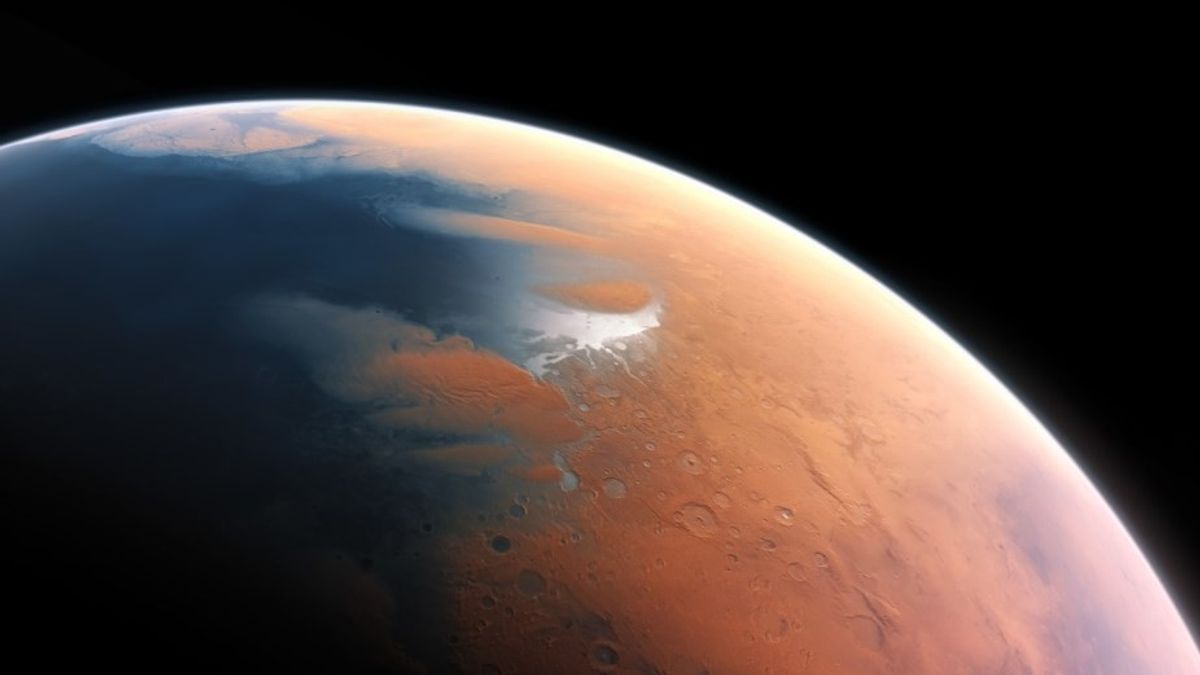JAKARTA - New findings reveal that ocean-wide water is buried in the Martian crust. The water does not evaporate into the sky as many people think.
Previously, researchers stated that Mars once had an ocean covering its entire surface with a depth of 100 to 1,500 meters. The water there is predicted to be as much as the Atlantic Ocean on Earth as revealed by NASA.
Water is the first element that supports the various life of Earth's creatures. This evidence on Mars that once there was water reveals another possibility that at one time there was life on the Red Planet.
However, today Mars is arid and cold. Previously, scientists thought that after Mars lost the magnetic field that protected it, solar radiation and winds stripped away most of Mars' air and water.
However, new findings suggest that Mars does not lose all of its water by evaporating into space. Data from NASA's MAVEN (Mars Atmosphere and Volatile EvolutioN) and Mars Express ESA reveal that when water disappears from the Martian atmosphere, Earth's closest planet will only lose about 10 to 82 feet of global water (about 3 to 25 m) for 4, 5 billion years.
Now scientists have found predicting that water is hidden in the depths of Mars. Locked in a rock crystal structure beneath the surface of the Red Planet. They describe the findings in detail in the journal Science and at the Planetary Science Conference published on March 16.
Overall, researchers state that Mars lost 40 percent to 95 percent of its water during the Noachian period about 4.1 billion to 3.7 billion years ago.
"Mars basically became a dry and arid planet 3 billion years ago as we know it today," said the study's lead author, Eva Scheller, one of the scientists from the California Institute of Technology, Pasadena, as quoted from Space.com .
He also added that the Perseverance rover robot, which landed on Mars in February, could help complement this study, as compiled from Live Science.
"Because (Perseverance) is going to one of the most ancient parts of the Martian crust, and so it can help us better break down past water loss into the Martian crust."
Scheller also warned that although most of the water on Mars may still be hidden in the crust, that does not mean future astronauts who land on Mars will easily extract that water to sustain their lives there.
The English, Chinese, Japanese, Arabic, and French versions are automatically generated by the AI. So there may still be inaccuracies in translating, please always see Indonesian as our main language. (system supported by DigitalSiber.id)










